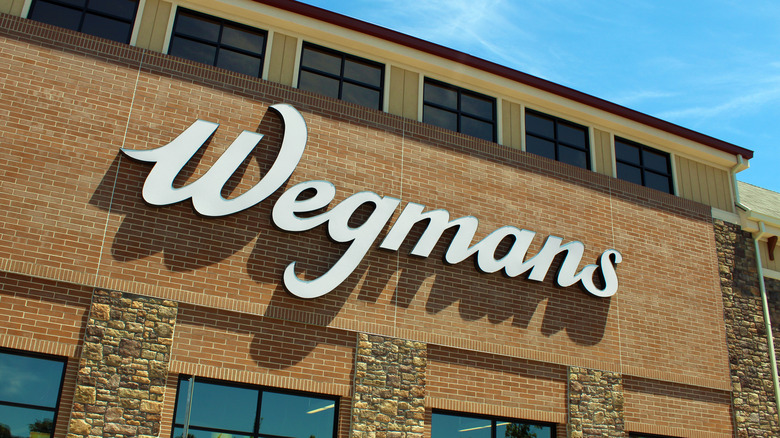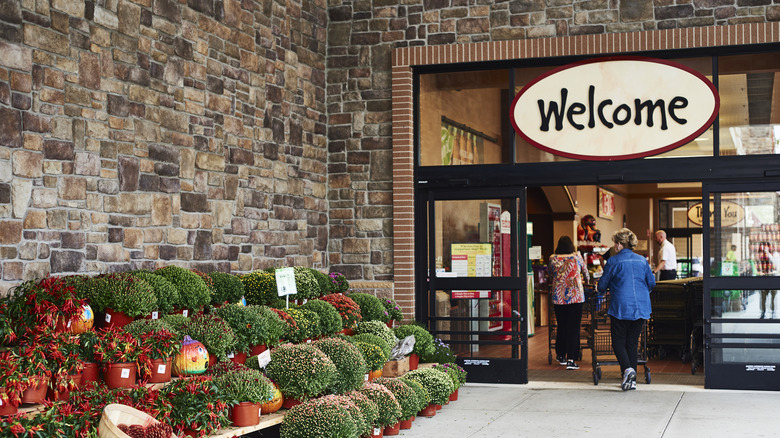Why Wegmans Intentionally Didn't Include An Apostrophe
Since Fortune began releasing its 100 Best Companies to Work For list, Wegmans has been on it (per Wegmans). When one store in Pennsylvania first opened, over 10,000 job seekers applied for the 500 open positions; that's like an Ivy-league acceptance rate, points out Eat This, Not That. "My managers are always asking me, 'What do you want to do next? What do you want to do with your career?' and then helping me to get ready for that next step," a Wegmans employee told Thrillist. "They are striving to push forward as a company, but they also want their employees to come with them and be a part of that success."
The grocery is beloved throughout the Northeastern United States. Barstool Sports' David Portnoy rated Wegmans frozen pizza the highest out of all the frozen pizzas he's sampled (via Step Out Buffalo), and the store has even inspired a high school musical. Letters begging for additional stores to be opened are frequently received (per PYMNTS).
According to Word Genius, naming a business after the last name of an owner was once quality reassurance; it was a familiar stamp of approval, and a name written as the grammatically possessive form (Kohl's, Macy's, McDonald's) signaled to a shopper that an enterprise could be trusted. But Wegmans appears as a plural, not the possessive form. What's the deal?
Perfect grammar doesn't always pay
Wegmans isn't the only store that gives grammar nerds pause. Buffalo News points to Tim Hortons as an example; Tim Horton, by himself, founded the franchise. As reported in a Mental Floss article, Horton stores were first written as possessive names until Quebec law required French on all business signs. Since that pesky possessive apostrophe is an English convention, Tim Hortons adjusted the brand name accordingly. For Wegmans, however, there's a thriftier reason.
Brothers John and Walter Wegman began selling goods from a cart in 1916. As their enterprise grew, the brothers sought to redefine what a grocer could be; they included cafeterias in floor plans, organized cooking demonstrations, hosted food tasting events, introduced shoppers to farmers, and placed model trains in stores (via Thrillist). The 1916 Wegmans had an apostrophe written in the name, but when the company incorporated in 1931, the punctuation was dropped (via The Sun). According to the company, this small change saved the brothers more than a half million dollars, and they invite shoppers to think about the name as a reference to the many Wegmans who helped make the company what it is today.

